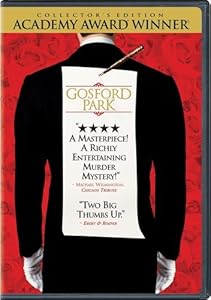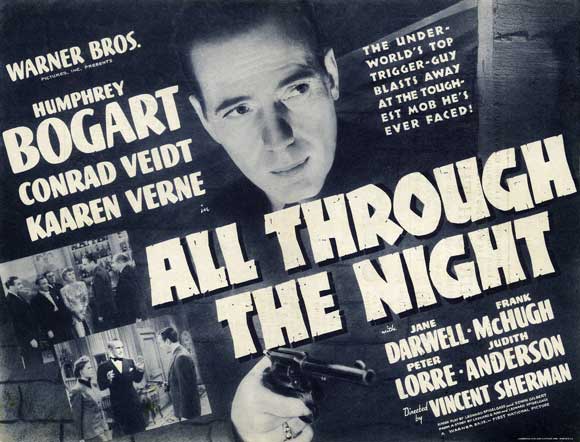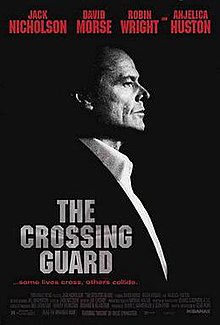Been an interesting and busy week at Casa Lopresti.
For instance, on Sunday I looked at
My Little Corner, Sandra Seaman's indispensible blog and saw a link to
Angie's Desk's listing of anthologies looking for stories. And I had a tale that would fit one. The next morning I checked my records and found that that story had been sitting at a magazine for six months, waiting for judgment. So, obviously I couldn't send it it somewhere else.
Five minutes later I received an email rejection from the magazine. Okay, I guess fate wanted me to send that story to the anthology. We will see if the editor agrees.
Last month I had an idea for a piece of flash fiction (under 1000 words). Problem was, it was about a new scam that is making the rounds and if I sent it to one of the paper magazines it might not appear for a year. And, darn it, I wanted to make sure people knew about the scam
now.

So I got a brain storm. On Sunday I contacted Linda Landrigan and she agreed. "Shanks Holds The Line" is now up on the
Alfred Hitchcock's Mystery Magazine blog,
Trace Evidence. I hope you enjoy it. (And thanks to our own R.T. Lawton for editorial help along the way.)
But wait! There's more!
Crime City Central is part of District of Wonders, a series of free podcasts that include readings of short stories. (My favorite title is their science fiction entry: Starship Sofa!)
They asked me to contribute a story and so in their current entry you will find "Shanks On The Prowl," which originally appeared in AHMM back in May 2006. The expert reading is by Rob Smales. I had a fun time e-chatting with Mr. Smales, who wanted to make sure he got all the pronunciations of the character's names right. I think he scored one hundred percent.
Okay, I'm sure the next few months will be back to humdrum normal. I can cope. Hoping you the same.
And here are last week's movie quotations, with the sources:
1. -Well, I also feel it's about time someone knocked the Axis back on its heels.
-Excuse
me, Baby. What she means it's about time someone knocked those heels
back on their axis. Leda Hamilton ( Kaaren Verne)/ Gloves
Donahue (Humphrey Bogart)
All Through The Night
2. Twelve people go off into a room: twelve different minds, twelve
different hearts, from twelve different walks of life; twelve sets of
eyes, ears, shapes, and sizes. And these twelve people are asked to
judge another human being as different from them as they are from each
other. And in their judgment, they must become of one mind - unanimous.
It's one of the miracles of Man's disorganized soul that they can do it,
and in most instances, do it right well. God bless juries. -Parnell McCarthy (Arthur O'Connell) Anatomy of a Murder
3. -If we wanted applause, we would
have joined the circus.
-I thought we did. -Jack
O'Donnell (Bryan Cranston)/ Tony Mendez (Ben Affleck) Argo
4. Exactly how many laws are
we breaking here?
-You don't want to
know. - Senator (Victor A. Young)/ Edgar Clenteen (David Morse)
Bait
5. -Your demands are very great under the circumstances.
-Why shouldn't they
be? Fat Gut's my best friend, and I will not betray him
cheaply. -Ahmed (Manuel Serano) / Dannreuther (Humphrey Bogart) Beat The Devil

6. - I'm a brother shamus!
-Brother Shamus? Like an Irish monk? -Da Fino (Jon Polito)/ The Dude (Jeff Bridges)
The Big Lebowshi
7. -Why did you have to go on?
-Too many people told me to stop. -Vivian (Lauren Bacall)/ Marlowe (Humphrey
Bogart)
The Big Sleep
8. Of course, you won't be able to lie
on your back for a while but then you can lie from any position, can't
you? - Reggie Lambert (Audrey Hepburn) ,
Charade
9. Saddam? His name's Saddam? Oh,
that's real good, Bruce. Yeah, I'm gonna pin a medal on an Iraqi named Saddam.
Give yourself a raise, will you? -Rick Cabot (Brendan Fraser) -Crash.
10. Freedom is overrated. - John
Booth (David Morse).
The Crossing Guard.
11. -Will two hundred dollars be enough in advance, Mr Reardon?
-Two hundred, I'd shoot my grandmother.
-That won't be neccessary.
-Never can tell. In my last case, I had to throw my own brother out of an airplane.
- Juliet Forrest (Rachel Ward) / RIgby Reardon (Steve Martin)
Dead Men Don't Wear Plaid
12. There's a hundred-thousand streets
in this city. You don't need to know the route. You give me a time and a place,
I give you a five minute window. Anything happens in that five minutes and I'm
yours. No matter what. Anything happens a minute either side of that and you're
on your own. Do you understand? -Driver (Ryan Gosling) Drive
13. I am Nikita! - Guess Who (Anne
Parillaud) La Femme Nikita
14. -My father is no different than any
powerful man, any man with power, like a president or senator.
-Do you know how naive you sound, Michael? Presidents and senators don't have
men killed.
-Oh. Who's being naive, Kay? - Michael Corleone (Al Pacino) / Kay Adams
(Diane Keaton) The Godfather

15. When you think of what they have
to carry, all those jimmies and torches and skeleton keys, it's a
miracle anyone ever gets burgled at all. - Lady Constance (Maggie Smith)
Gosford Park
16. Locked,
from the inside. That can only mean one thing. And I don't know what it is. -
Sam Diamond (Peter Falk)
Murder By Death
17. You know, this'll be the first
time I've ever killed anyone I knew so little and liked so well.
- Helen Grayle (Claire Treveor) Murder, My Sweet
18. Well, you take a big
chance getting up in the morning, crossing the street, or sticking your face in a fan. - Frank Drebin (Leslie Nielsen) The Naked Gun
19. -It's a mess, ain't it, sheriff?
-If it ain't, it'll do till the mess gets here.-Wendell (Garrett Dillahunt) /
Ed Tom Bell (Tommy Lee Jones) No Country For Old Men
20. -Is there a way to win?
-There's a way to lose more slowly.
Kathie Moffatt (Jane Greer) / Jeff Bailey (Robert Mitchum) Out Of The
Past

21. At least meet her. Maybe she'd be
someone you'd
like to kill. - Owen (Danny DeVito)
Throw
Momma Off The Train.
22. He's a fanatic. And the
fanatic is always concealing a secret doubt. -George Smiley (Gary Oldham)
in Tinker Tailor Soldier Spy.
23. On TV is where we learn about who
we really are. Because what's the point of doing anything worthwhile if
no one's watching? And if people are watching it makes you a better
person. - Suzanne Stone Maretto (Nicole Kitman) To Die For
24. - I need your help. I can't tell you what it is, you can never ask me about
it later, and we're gonna hurt some people.
- Whose car are we gonna' take? -Doug McRay (Ben Affleck) /
James Coughlin (Jeremy Renner)
The Town
25. The greatest trick the Devil ever pulled was convincing the world he didn't
exist. –Verbal Kint (Kevin Spacey)
The Usual Suspects














